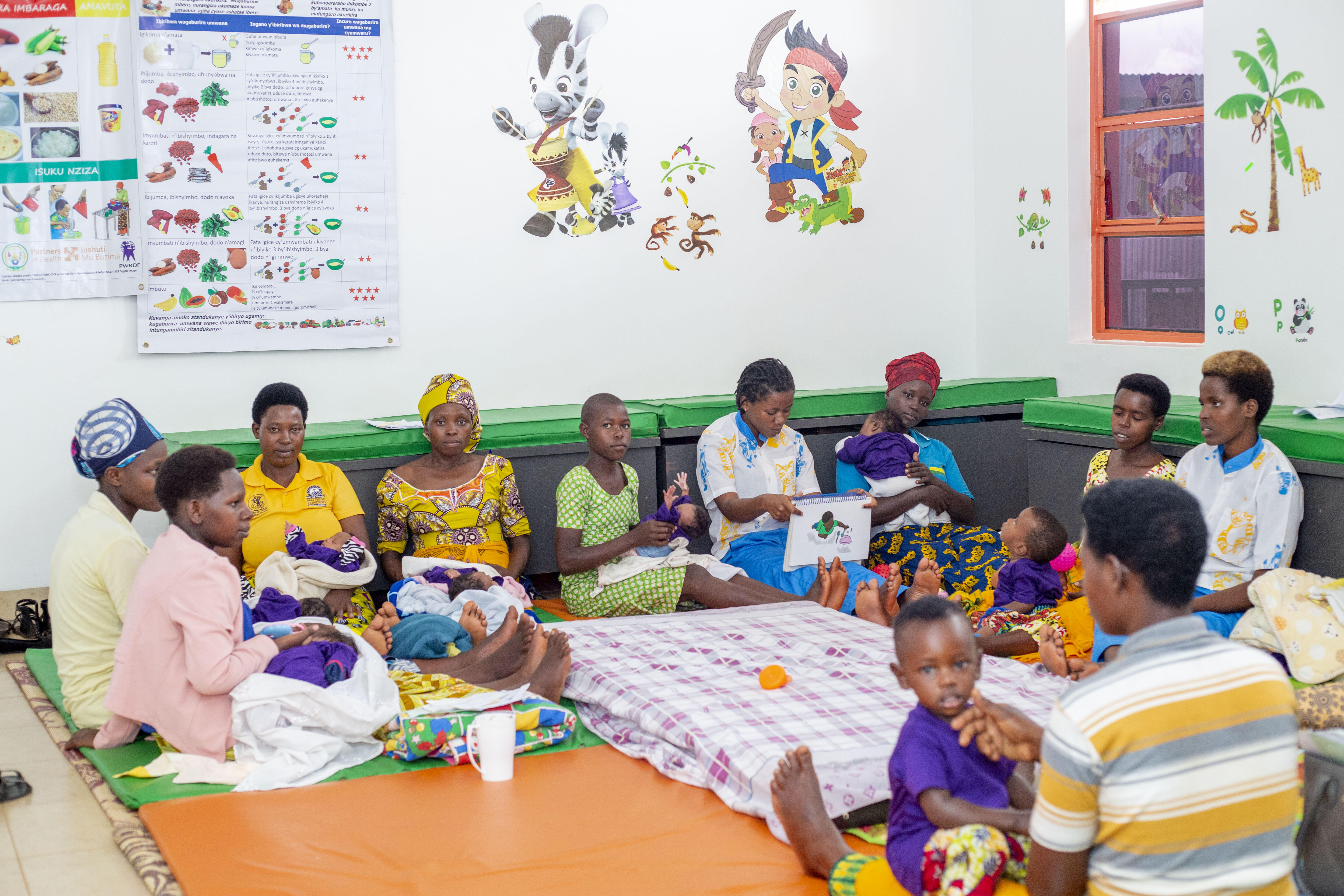“After I gave birth, I was not able to care for myself and my baby because my family provided minimal support. I noticed that some of my peers are getting some essential needs from being sex workers. So I decided to engage in sex work as well so that I may get some money to cover my needs”.
Irakoze Dinah is a young mother from Kigeme Refugee Camp, she got pregnant at a young age and faced stigma and discrimination from her family and society. She ended up in sex work so that she may get the essential needs for herself and her baby.
Most of the First Time Young Mothers (FTYM) stories are a double tragedy of a helpless teenager and enraged parents. The parents think their children have lost a future, they feel ashamed because of what the community thinks of teenage pregnancy, and are not adequately prepared to handle the stigma associated with it. On the other hand, because of the stigma and lack of help from their families, most young mothers are abandoned or kicked out from home. This situation most of the time pushes young mothers to engage in sex work, thinking it is their only way to get essential needs.
“Stigma and discrimination in family and society have been the biggest challenge because culturally, a girl who gives birth before marriage is considered a curse.” Irakoze said
To support these young mothers, Africa Humanitarian Action (AHA), in collaboration with UNFPA and funding support from the Korea International Cooperation Agency (KOICA), the aid agency of the Government of the Republic of Korea is implementing the Healthy & Empowered Youth Project in the refugee camps, including Kigeme and the districts of Rusizi, Nyamasheke, and Karongi. The Project supports the most vulnerable young people, mainly FTYM, to undertake economic empowerment training, get life skills mentorship, and provide inputs to start income-generating activities (IGA).
From August 2020, AHA worked with the community leaders to select the most vulnerable youth for inclusion in the economic empowerment support interventions. Dina Irakoze and other selected FTYMs started with three group businesses, two in pig farming and the other in goat rearing.
“This is a new beginning for me! Being part of this group opened my eyes and gave me new hope. I know now that I don’t need to be a sex worker to survive. I have been trained and I am determined to work hard for a better future for myself, my child and my family.” Said Irakoze.
“When a young girl gives birth before marriage, she cannot be trusted by her family anymore. Sometimes they are rejected by their families and many of them lose hope and end up in transactional sex at the border with Burundi to raise money to cover their essential needs. Thanks to the support from this project now they are striving to give themselves and their families a brighter future.” Said Uwamahoro Confiance, in charge of Social Affairs in Kigeme Refugee Camp
According to Uwamahoro, goat and pig farming is the hope for many underprivileged teenage mothers. It is the only realizable way of life for many to look after their babies and give them hope to lead a meaningful life.
UNFPA supports a holistic approach to promote sexual and reproductive health rights for all, empowering individuals to make healthy choices and inspiring adolescents and youth to attain their full potential in life. Additionally, UNFPA works to mobilize social support for rights and choices for all.
“Teenage pregnancy and early motherhood dent the future of women and girls, affecting their education, sparking discrimination in their communities, and consequently, a low income earning potential later in life. We are grateful to KOICA for this partnership that has transformed the lives of the vulnerable youth in Refugee Camps” said Mark Bryan Schreiner, UNFPA Representative.
In only the first year of implementation, the Healthy & Empowered Youth Project counts numerous achievements. This is due to behaviour change among teenage mothers, the support of local leaders, parents, and guardians in creating a supportive environment for FTYMs to enjoy their Sexual and Reproductive Health and Rights with close follow-up through AHA and the Local Leaders.
“We are supported and given the opportunity to meet other young mothers and share knowledge on sexual and reproductive health and rights and how to grow our economic potential. We encourage each other and learn to work together as a team.” Stated Irakoze.
"These teenagers had lost hope, yet now they dream of achieving greatness in life," says Emmanuel Uwimana, the Program Coordinator in Kigeme Refugee Camp.
Through this Project, the micro-enterprise start-up support is provided to the members, including the first stock of animals to each group, 12 months' rent payment for space where to keep the animals, funds to build the temporary animal shelters, payment for the shepherd/guards for 11 months, payments for regular veterinary visits, vaccination and medical care for one year.
"We look after the goats in turns. Even with the Shepherd, each of us is assigned a day where we take local feeds to the animals. This makes us feel that the Project is our responsibility." says Nyiramugisha Alliance, a member of one of the groups, named TERIMBERE Association.
The young mothers are on a new journey and describe themselves as unstoppable for the better future of their chil
dren.
“Our goal is to become micro-entrepreneurs and take care of our children. The knowledge and skills we acquired to start and manage microenterprises are growing by the day, we are now unstoppable.” Alliance added


